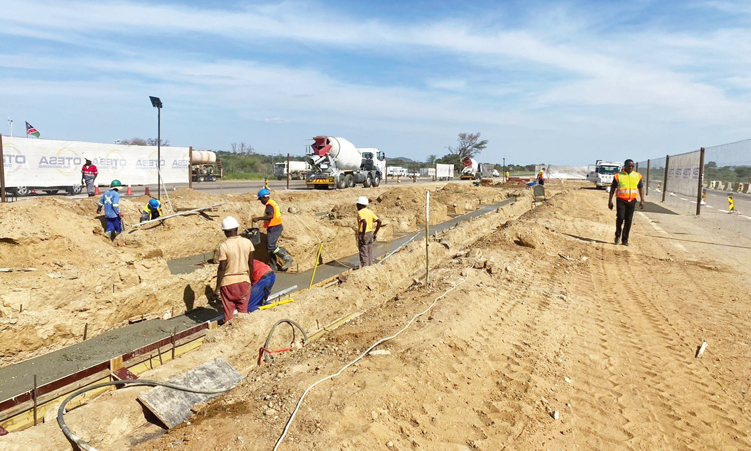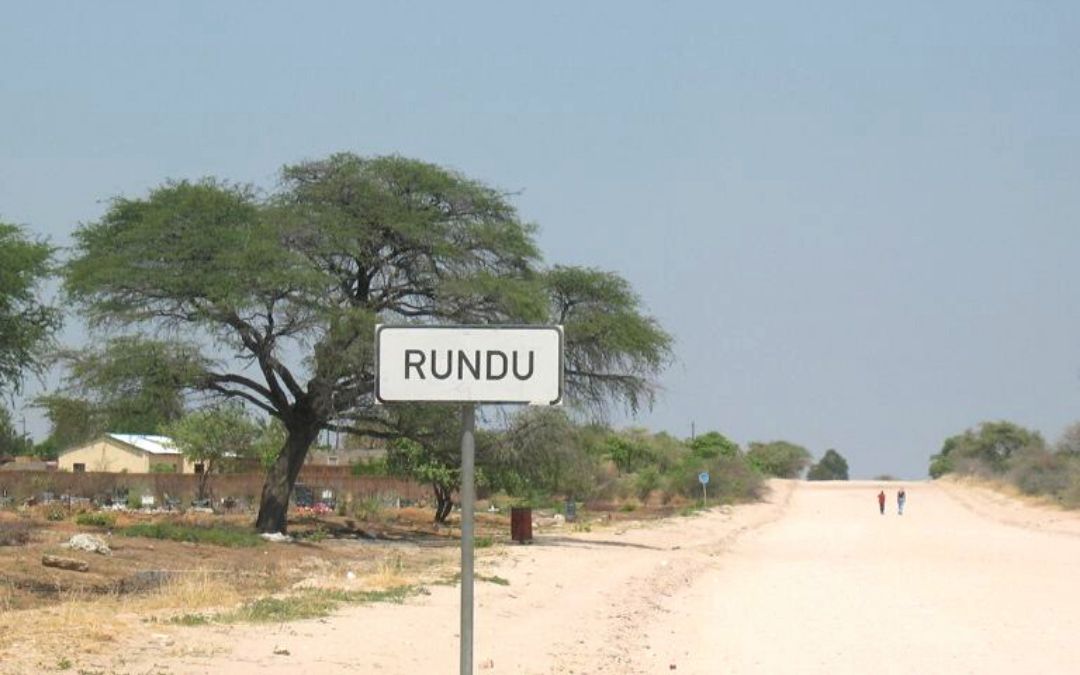These were the verbatim words of Information and Broadcasting Minister Netumbo Nandi-Ndaitwah in a press release (undated) earlier this week in which she denied an article in the Government newspaper which said that she had withdrawn from a NBC talk show on the same subject.
And if we take her at her word, then the door which she claimed was open to the media, has been closed with this categorical announcement (especially to those who believe in self-regulation rather than a Government-imposed initiative)! NANDI-NDAITWAH went on to say that she was not yet ready to discuss the matter in public until she had a ‘working document’ in hand. After insisting the Government would establish a media council, she said that “in any case no one is opposing the idea …(and) even the media has been working on it, albeit without success”.Ndaitwah has either missed the point or hasn’t yet got it, namely, that there have been several attempts at self-regulation in the past, most of which died out due to lack of interest, among others it must be said, by Government itself! And it is self-regulation that is key here.Anything that is Government-imposed cannot possibly constitute ‘self-regulation’ of the media and will be rejected (by a good proportion of the press here at any rate).And it would also be a complete waste of time, money and resources.No one, least of all the media, wants to create another bureaucracy, which is more or less what a media council would be.So the upshot is that the press remain tasked with this issue in the search for a workable solution, and don’t need Government threats to do it for them, with or without consultation! Government generally needs to better brief itself on what the media are all about.I find that here is pervasive ignorance, and it will only lead to misunderstandings and even conflict if they insist on having their way.Media have rights, but they have responsibilities too.We’re all aware of this, and don’t need Government to tell us what we know best.But our responsibilities, though, are towards the people (readers, viewers, listeners) and not towards the Government of the day.Unfortunately, governments (and ours is no exception) have a tendency to want to control the media and so they have very vested interests in trying to set up regulatory measures to keep them in place.It’s been a particular tendency on the part of African governments in the past.With the onset of democracy there’s been a lessening of this impetus, but it still hasn’t disappeared altogether.If people really take time to think about it, its not the media the Government wants to control per se, but the thoughts and actions of its citizenry and its own image in the eyes of the populace, and this is why government-imposed regulation is dangerous to democracy and the right of the people to choose.So the act envisaged by the Government (and expressed by the Minister of Information and Broadcasting) holds within it distinct dangers to freedom of speech, and not only freedom of the press.That having been said, times have changed.Traditional media, such as newspapers, radio and television, have been supplemented by new media and information technologies that are far more difficult to control.And so the Government needs to think through its plans very carefully before embarking upon them.Seems pretty pointless to put in place expensive measures to control the ‘old’ media, when people simply have to go online to get access to almost anything they want, and to be able to express themselves any which way they’d like to.So they don’t necessarily need the NBC Chat Show or this newspaper’s SMS pages to do so! If these rights would be curtailed, they’d quickly find expression elsewhere! So Government needs to go back to the drawing board and do its homework more thoroughly before making veiled threats about ‘regulating’ the media.We have to mention that while Prime Minister Hage Geingob boasted recently that no journalist had been arrested in Namibia under a Swapo Government, they’ve nevertheless imposed several bans on this newspaper for very spurious reasons.More accurately, because they simply don’t take too kindly to criticism! So that should give us an idea of what their agenda is in all this.Namibia needs a responsible press.But it needs media that are free and diverse and that give our people choices – what to read, what to watch, what to listen to.That is their right, and their right alone.It is not up to Government to decide for them.I personally think the Minister’s words may be a rather empty threat.And if not, I hope the idea fizzles out as soon as possible, for government-controlled media are not an option for those of us who’ve fought against it in the past.After insisting the Government would establish a media council, she said that “in any case no one is opposing the idea …(and) even the media has been working on it, albeit without success”.Ndaitwah has either missed the point or hasn’t yet got it, namely, that there have been several attempts at self-regulation in the past, most of which died out due to lack of interest, among others it must be said, by Government itself! And it is self-regulation that is key here.Anything that is Government-imposed cannot possibly constitute ‘self-regulation’ of the media and will be rejected (by a good proportion of the press here at any rate).And it would also be a complete waste of time, money and resources.No one, least of all the media, wants to create another bureaucracy, which is more or less what a media council would be.So the upshot is that the press remain tasked with this issue in the search for a workable solution, and don’t need Government threats to do it for them, with or without consultation! Government generally needs to better brief itself on what the media are all about.I find that here is pervasive ignorance, and it will only lead to misunderstandings and even conflict if they insist on having their way.Media have rights, but they have responsibilities too.We’re all aware of this, and don’t need Government to tell us what we know best.But our responsibilities, though, are towards the people (readers, viewers, listeners) and not towards the Government of the day.Unfortunately, governments (and ours is no exception) have a tendency to want to control the media and so they have very vested interests in trying to set up regulatory measures to keep them in place.It’s been a particular tendency on the part of African governments in the past.With the onset of democracy there’s been a lessening of this impetus, but it still hasn’t disappeared altogether.If people really take time to think about it, its not the media the Government wants to control per se, but the thoughts and actions of its citizenry and its own image in the eyes of the populace, and this is why government-imposed regulation is dangerous to democracy and the right of the people to choose.So the act envisaged by the Government (and expressed by the Minister of Information and Broadcasting) holds within it distinct dangers to freedom of speech, and not only freedom of the press.That having been said, times have changed.Traditional media, such as newspapers, radio and television, have been supplemented by new media and information technologies that are far more difficult to control.And so the Government needs to think through its plans very carefully before embarking upon them.Seems pretty pointless to put in place expensive measures to control the ‘old’ media, when people simply have to go online to get access to almost anything they want, and to be able to express themselves any which way they’d like to.So they don’t necessarily need the NBC Chat Show or this newspaper’s SMS pages to do so! If these rights would be curtailed, they’d quickly find expression elsewhere! So Government needs to go back to the drawing board and do its homework more thoroughly before making veiled threats about ‘regulating’ the media.We have to mention that while Prime Minister Hage Geingob boasted recently that no journalist had been arrested in Namibia under a Swapo Government, they’ve nevertheless imposed several bans on this newspaper for very spurious reasons.More accurately, because they simply don’t take too kindly to criticism! So that should give us an idea of what their agenda is in all this.Namibia needs a responsible press.But it needs media that are free and diverse and that give our people choices – what to read, what to watch, what to listen to.That is their right, and their right alone.It is not up to Government to decide for them.I personally think the Minister’s words may be a rather empty threat.And if not, I hope the idea fizzles out as soon as possible, for government-controlled media are not an option for those of us who’ve fought against it in the past.
Stay informed with The Namibian – your source for credible journalism. Get in-depth reporting and opinions for
only N$85 a month. Invest in journalism, invest in democracy –
Subscribe Now!










